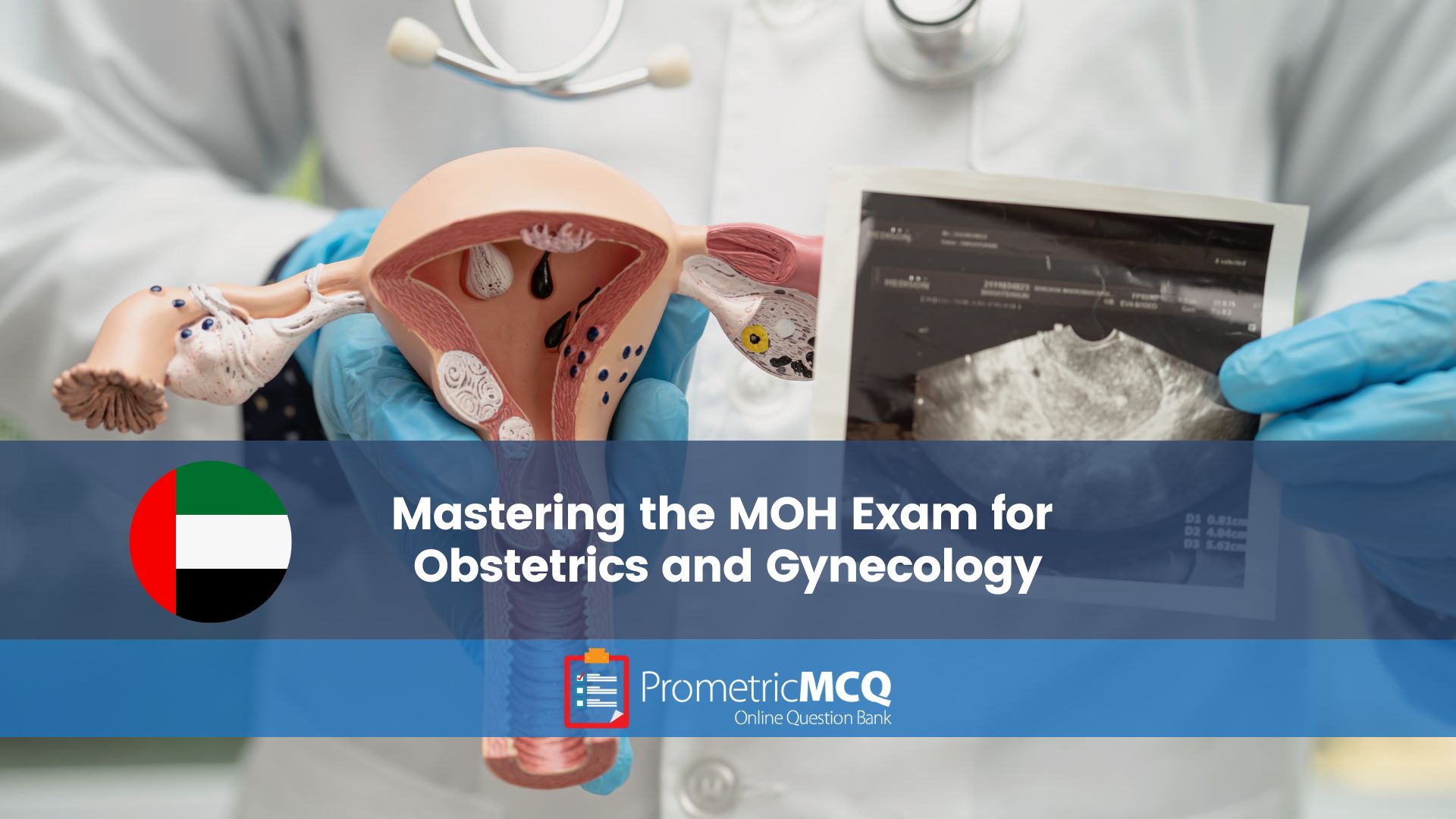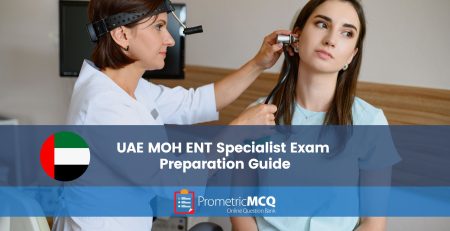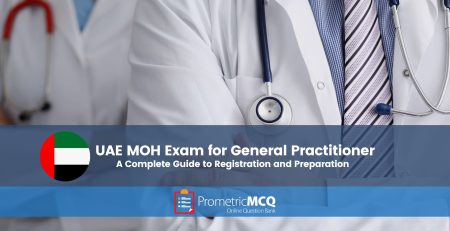
Mastering the MOH Exam for Obstetrics and Gynecology
Webmaster2024-05-02T11:43:30+00:00Are you ready to unlock the secrets to acing the MOH Exam for Obstetrics and Gynecology? Look no further! In this blog post, we will provide you with expert study tips and strategies for cracking the code and mastering this challenging exam.
Whether you’re a medical student or a practicing physician looking to advance your career, these tips will help you succeed. Let’s dive in and conquer the MOH Exam together!
Table of Contents
ToggleIntroduction to the MOH Exam for Obstetrics and Gynecology
The Ministry of Health (MOH) Exam in Obstetrics and Gynecology is a rigorous and comprehensive assessment that evaluates the knowledge, skills, and competence of medical professionals in this specialized field. It is a crucial step for those looking to advance their careers or practice medicine in countries like Saudi Arabia, UAE, Oman, Qatar, and other Gulf Cooperation Council (GCC) countries..
This exam covers all aspects of obstetrics and gynecology including pregnancy care, childbirth, reproductive health, gynecological disorders, and management of various gynecological conditions. It aims to assess the candidate’s understanding of these topics as well as their ability to apply their knowledge in real-life scenarios.
The MOH Exam consists of two parts – a written test and a clinical/practical exam. The written test comprises multiple-choice questions covering all aspects of obstetrics and gynecology. The number of questions may vary but it usually ranges from 150-200 questions. On the other hand, the clinical/practical exam evaluates the candidate’s practical skills through different stations such as history taking, physical examination, interpretation of laboratory results or imaging studies.
Preparing for this exam can be daunting for many candidates due to its extensive scope. However, with proper guidance and effective study strategies, cracking this code is not impossible. In this blog post, we will share some valuable tips that can help you master the MOH Exam for Obstetrics and Gynecology.
Firstly, it is important to have a thorough understanding of the exam format and content coverage. This will give you an idea about what to expect on the day of your exam and help you plan your preparations accordingly.
Secondly, make sure to cover all essential topics such as antenatal care, common pregnancy complications like preeclampsia or gestational diabetes mellitus (GDM), labor management techniques including pain relief methods such as epidural anesthesia or breathing techniques. Additionally , familiarize yourself with gynecological conditions like menstrual disorders, endometriosis, and common gynecological surgeries such as hysterectomy or myomectomy.
Furthermore, creating a study schedule can help you stay organized and cover all the topics systematically. Allocate more time to challenging areas and revise regularly to retain information.
Practice is key when it comes to acing this exam. Solve as many previous years’ papers and mock tests as possible to get a feel of the actual exam and identify your weak areas for improvement.
The MOH Exam for Obstetrics and Gynecology is an important step towards becoming a successful medical professional in this field. With dedication, hard work, and proper guidance, you can crack this code and achieve your career goals. So start early, stay focused, and trust in your abilities – success will surely follow!
Understanding the Format of the Exam
The MOH (Ministry of Health) exam in obstetrics and gynecology is a rigorous test that requires thorough preparation and understanding of its format. In this section, we will break down the different components of the exam and provide tips on how to tackle each one effectively.
1. Multiple Choice Questions (MCQs):
The MCQ section is the most common format used in medical exams, including the MOH exam. This section consists of a set of questions with multiple answer options, where only one answer is correct. It tests your knowledge on various topics such as anatomy, physiology, pathology, and pharmacology. To excel in this section, it is crucial to have a strong foundation in these subjects.
Tips:
- Familiarize yourself with the content and structure of previous MOH exams.
- Practice solving MCQs from reputable sources, such as review books or online question banks.
- Pay attention to keywords in both the question stem and answer options.
- Eliminate obviously wrong answers before making your final selection.
- Manage your time wisely by allocating enough time for each question.
2. Clinical Scenarios:
This section simulates real-life clinical scenarios that you may encounter during your practice as an OB-GYN specialist. It assesses your ability to apply theoretical knowledge into practical situations and make sound clinical decisions.
Tips:
- Review relevant case studies from textbooks or academic journals to familiarize yourself with different scenarios.
- Sharpen your critical thinking skills by attending workshops or participating in case discussions with peers.
- Pay attention to details mentioned in the scenario and use them to guide your decision-making process.
- Practice time-management by prioritizing urgent cases over non-emergency ones.
3. Oral Exam:
The oral exam evaluates your communication skills, clinical knowledge, and problem-solving abilities under pressure. You will be asked questions by a panel of experts who will assess not only what you say but also how you say it.
Tips:
- Prepare a list of common topics and questions that may be asked during the oral exam.
- Practice answering these questions in front of a mirror or with a study partner to improve your confidence and delivery.
- Be calm, composed, and professional during the exam.
- Listen carefully to the panel’s feedback and use it to improve your performance in future exams.
Understanding the format of the MOH exam is crucial for success. By following these tips and continuously practicing, you can confidently tackle each section and increase your chances of acing the exam. Remember to also take care of yourself by getting enough rest, eating well, and managing stress during your preparation period. Good luck!
Tips for Creating an Effective Study Plan
Creating an effective study plan is crucial for success in any exam, especially the MOH (Ministry of Health) exam in Obstetrics and Gynecology. This exam requires a comprehensive understanding of the field, as well as critical thinking and problem-solving skills. With the right study plan, you can not only cover all topics but also retain information effectively for the exam day.
Here are some tips to help you create an effective study plan:
- Start early: The key to success is to start preparing early. Don’t wait till the last minute to begin studying because it will only lead to cramming and anxiety. Give yourself ample time to cover all topics thoroughly, revise them multiple times, and practice mock tests.
- Understand the syllabus: Before creating a study plan, make sure you have a clear understanding of the syllabus. Go through each topic in detail and familiarize yourself with its weightage in the exam. This will help you prioritize your studies accordingly.
- Break it down: Breaking down your syllabus into smaller chunks can make it more manageable and less overwhelming. Divide your syllabus by subject or topic and assign specific days or weeks for each one.
- Set realistic goals: It’s essential to set achievable goals when creating a study plan. Set daily or weekly targets that are realistic based on your current knowledge level and give yourself enough time to reach them.
- Use different learning methods: Everyone has their preferred learning style – some learn better by reading while others prefer visual aids or group discussions. Experiment with different learning methods during your preparation phase so that you can choose what works best for you on the exam day.
- Take breaks: Studying continuously without taking breaks can lead to burnout and hinder your ability to retain information effectively. Make sure you take short breaks every few hours, go for a walk, do some light exercise or engage in activities that help you relax and recharge.
- Revise regularly: It’s crucial to revise what you have studied regularly, especially closer to the exam date. Schedule revision sessions in your study plan and try to revise each topic at least three times before the exam.
- Practice mock tests: Taking mock tests is an essential part of your preparation. It helps you assess your knowledge and identify areas that need more attention. Make sure to include regular mock tests in your study plan.
Remember, creating an effective study plan is not a one-size-fits-all approach. You may need to tweak it according to your strengths, weaknesses, and schedule. However, by following these tips, you can create a personalized study plan that will help you ace the MOH Exam for Obstetrics and Gynecology with confidence.
Resources for Studying Obstetrics and Gynecology
Obstetrics and gynecology is a vast and complex field of medicine that requires extensive knowledge, critical thinking skills, and practical application. As a result, studying for the MOH Exam for this specialty can be overwhelming for many medical students. However, with the right resources and study techniques, you can crack the code and master this exam.
In this section, we will discuss some essential resources that will aid you in your journey to become proficient in obstetrics and gynecology. These resources are carefully selected based on their credibility, relevance to the exam content, and effectiveness in aiding understanding.
- Textbooks: Textbooks are an indispensable resource for any medical student preparing for exams. They offer comprehensive coverage of all topics in obstetrics and gynecology, making them an excellent reference tool during your studies. Some recommended textbooks include “Williams Obstetrics” by Cunningham et al., “Obstetrics: Normal and Problem Pregnancies” by Gabbe et al., and “Comprehensive Gynecology” by Lobo et al.
- Review Books: Review books provide concise summaries of key concepts in obstetrics and gynecology, making them great tools for quick revision. They also often include practice questions with detailed explanations to help you assess your understanding of the material. Examples of popular review books include “Blueprints Obstetrics & Gynecology” by Callahan et al., “Case Files Obstetrics & Gynecology” by Toy et al., and “First Aid for the Obstetrics & Gynecology Clerkship” by Shaber et al.
- Online Resources: The internet offers a wealth of resources that can aid your studies in obstetrics and gynecology. Websites such as Medscape Obstetrics & Gynecology offer free access to articles, case studies, guidelines, clinical tools, and more from leading experts in the field. Other useful online resources include UpToDate, ACOG Practice Bulletins, and Medical Education Videos.
- Question Banks: Practice questions are an essential part of exam preparation as they help you apply your knowledge and identify areas that need more attention. Question banks such as PrometricMCQ.com Obstetrics & Gynecology https://www.prometricmcq.com/gynaecology-and-obstetrics-mcqs/ offer a large pool of high-yield questions that simulate the actual exam experience.
- Study Groups: Studying alone can be challenging, especially when preparing for a difficult exam like the MOH in obstetrics and gynecology. Consider forming or joining a study group with your classmates to share notes, discuss difficult topics, and quiz each other on important concepts.
In addition to these resources, it is crucial to attend lectures, participate in clinical rotations, and practice hands-on skills whenever possible. Remember to also take breaks when needed to prevent burnout and maintain a healthy balance between studying and self-care.
Practical Tips for Retaining Information and Memorizing Key Concepts
Retaining information and memorizing key concepts are essential skills for success in any exam, especially the Ministry of Health MOH exam in Obstetrics and Gynecology. This section will provide practical tips to help you retain information and memorize key concepts effectively.
- Understand the Material: Before trying to memorize anything, it is important to have a good understanding of the material. Read through your notes or study materials thoroughly and make sure you understand the concepts before moving on to memorization.
- Use Mnemonic Devices: Mnemonic devices are memory aids that can help you remember complex information by associating it with something familiar. For example, creating an acronym using the first letter of each concept or making up a rhyme or song can be helpful in remembering lists or sequences.
- Organize Your Notes: Having organized notes can make a huge difference in retaining information and memorizing key concepts. Use headings, bullet points, diagrams, and colors to break down complex information into smaller chunks that are easier to remember.
- Active Learning Techniques: Instead of just reading through your notes passively, try active learning techniques such as summarizing, teaching someone else, or creating flashcards. These techniques engage your brain actively and help with retention.
- Practice Retrieval: One of the most effective ways to retain information is through retrieval practice – trying to recall information from memory without looking at your notes. Make use of flashcards or practice quizzes to test yourself regularly.
- Visualize Information: Our brain remembers images better than words; therefore visual aids such as diagrams, mind maps, or flow charts can be helpful in retaining information and connecting different concepts together.
- Create Associations: Try linking new information with things you already know to create associations that will help you remember better. This could be anything from personal experiences, pop culture references or even visualizations.
- Practice Regularly: Consistency is key when it comes to retaining information. Set aside a specific time each day to review your notes and practice retrieval. This will not only help you retain information but also avoid cramming before the exam.
- Get Enough Sleep: Our brains consolidate memories during sleep, so getting enough restful sleep is crucial for effective retention and recall of information. Make sure to get at least 7-8 hours of sleep every night.
- Take Breaks: It’s important to give your brain some downtime between studying sessions. Take short breaks every 45-50 minutes to refresh your mind before continuing with your study session.
By following these practical tips, you can improve your retention and memorization skills, which will ultimately help you ace the MOH Obstetrics and Gynecology exam. Remember, everyone learns differently, so find what works best for you and make use of these tips in a way that suits your learning style. With dedication and consistent practice, you will be able to crack the code and achieve success in this competitive exam!
Strategies for Answering Multiple Choice Questions on the Exam
When it comes to multiple choice questions on exams, especially the MOH Exam for Obstetrics and Gynecology, many students often struggle with choosing the correct answer. However, with the right strategies and techniques, you can improve your chances of answering these questions correctly and ultimately cracking the code for success on your exam.
- Read the question carefully: The first step in answering a multiple choice question is to read it carefully. Many times, students make mistakes by not fully understanding what the question is asking. Take your time to understand each word and phrase in the question before jumping into selecting an answer.
- Eliminate wrong answers: One of the best strategies for multiple choice questions is to eliminate wrong answers first. This helps narrow down your options and increases your chances of selecting the correct answer. Look for any choices that are obviously incorrect or do not fit with the question.
- Use process of elimination: If you are unsure about an answer, use process of elimination to remove any choices that you know are incorrect. This can help you focus on fewer options and increase your chances of selecting the right one.
- Pay attention to keywords: Often, multiple choice questions will include keywords such as “except,” “not,” or “always.” These words can change the meaning of a question and therefore affect which answer is correct. Make sure to pay close attention to these keywords while reading the question.
- Consider all options: When answering a multiple choice question, it’s important not to jump to conclusions or select an answer based on assumptions without considering all options provided. Even if you think you know the correct answer immediately, take a moment to consider all choices before making your final decision.
- Beware of trick questions: Some multiple choice questions may be designed specifically to test how well you pay attention and avoid common traps set by examiners – also known as trick questions! Carefully read through each option before making your selection to avoid falling into these traps.
- Use context clues: Sometimes, the answer to a multiple choice question can be found within the context of the question itself. Look for any clues or hints that may point you towards the correct answer.
8. Don’t change your answers too often: While it’s important to review and double-check your answers, changing them too frequently can lead to confusion and potentially cause you to select an incorrect answer. Trust your instincts and stick with your initial response unless you are absolutely sure it is wrong.
By following these strategies for answering multiple choice questions on the MOH Exam for Obstetrics and Gynecology, you can improve your chances of success. Remember to stay calm, focused, and use critical thinking skills while going through each question carefully. With enough practice, you will soon become a master at cracking the code on this challenging exam!
Case Studies: Preparing for Clinical Scenarios on the Exam
Preparing for clinical scenarios on the exam can be one of the most challenging parts of the MOH Exam for Obstetrics and Gynecology. This section of the exam tests your ability to apply your knowledge and skills in a practical setting, just like you would in a real-life clinical situation. To excel in this aspect, it is crucial to familiarize yourself with case studies and practice answering clinical scenario questions.
A case study is an in-depth examination of a specific patient or situation that presents a complex medical problem. They are designed to simulate real-life scenarios that you may encounter as an obstetrician or gynecologist. These case studies require you to analyze and interpret information, make diagnoses, develop treatment plans, and provide appropriate care recommendations.
To effectively prepare for clinical scenarios on the MOH exam, here are some tips for utilizing case studies:
- Understand the format: Familiarize yourself with the format of the clinical scenario questions on the MOH exam. These questions may include written descriptions, images, lab results, or even videos presenting a patient’s symptoms or condition.
- Practice regularly: It is essential to practice solving different types of case studies regularly. This will help you improve your critical thinking skills and become comfortable with various formats.
- Use reliable sources: Make sure to use reputable resources when practicing case studies as they will provide accurate information and reflect real-life situations better.
- Study systematically: Start by reading through each case study carefully before attempting to answer any questions related to it. Pay close attention to details such as age, gender, past medical history, chief complaint(s), vital signs etc., which could impact your diagnosis and management plan.
- Apply your theoretical knowledge: Case studies are designed to assess your understanding of theory-based concepts and their application in practical settings. So make sure you have a solid understanding of all topics covered on the syllabus before attempting any practice cases.
- Collaborate with peers: Group discussions and solving case studies together with your colleagues can be beneficial, as it allows you to share knowledge and learn from each other’s perspectives.
- Review and reflect: After completing a case study, take some time to review and reflect on your answers. This will help you identify any knowledge gaps or areas that need improvement.
By following these tips and incorporating regular practice of case studies in your study routine, you can confidently tackle clinical scenarios on the MOH Exam for Obstetrics and Gynecology. Remember to stay calm, use your theoretical knowledge effectively, and think critically when approaching these questions. With dedication and practice, you can crack this challenging aspect of the exam!
Maintaining Physical and Mental Health During Exam Preparation
Preparing for the MOH Exam for obstetrics and gynecology can be a stressful time for any aspiring candidate. With the pressure to perform well and the vast amount of information to cover, it is easy to neglect one’s physical and mental health. However, taking care of yourself during this crucial period is essential for your overall well-being and success in the exam.
Here are some tips on how you can maintain good physical and mental health while preparing for the MOH exam:
- Get Sufficient Sleep – One of the most important aspects of maintaining good physical and mental health is getting enough sleep. It may be tempting to pull all-nighters while studying, but lack of proper rest can lead to exhaustion, difficulty concentrating, memory problems, and increased stress levels. Make sure to get at least 7-9 hours of sleep every night to feel refreshed and energized for your study sessions.
- Eat Nutritious Meals – Your body needs fuel to function correctly, especially during times of intense studying. Make sure to eat regular meals consisting of healthy and nutritious food like fruits, vegetables, whole grains, lean proteins, and healthy fats. Avoid junk food as it can make you feel sluggish and affect your concentration levels.
- Exercise Regularly – While it may seem counter-intuitive when you have limited time available for studying, regular exercise has numerous benefits for both physical and mental health. It helps reduce stress levels by releasing endorphins (feel-good hormones), improves focus, memory retention, energy levels, and overall mood.
- Take Breaks – Studying continuously without breaks can lead to burnout quickly. Make sure to take short breaks every hour or so from your study session to stretch your body or go for a walk outside. This will give your mind a break from focusing intensely on the material.
- Practice Relaxation Techniques – In addition to taking breaks, practicing relaxation techniques like deep breathing, meditation, or yoga can help reduce stress and anxiety levels. This will not only benefit your overall well-being but also improve your ability to retain information.
- Talk to Someone – It’s normal to feel overwhelmed and stressed during exam preparation. Don’t be afraid to reach out to a friend, family member, or mentor for support and a listening ear. Sometimes just talking about your feelings can make you feel better and more motivated.
Taking care of your physical and mental health during exam preparation is crucial for your success in the MOH exam. Remember that a healthy mind and body are essential for learning effectively and retaining information. By following these tips, you can ensure that you are in the best shape possible both mentally and physically when it’s time to take the exam.
Conclusion: Final Words
Cracking the MOH Exam for obstetrics and gynecology may seem like a daunting task, but with the right study tips and strategies, it can be mastered. Throughout this blog article, we have discussed various techniques and resources that can help you prepare for this challenging exam.
Firstly, it is crucial to have a solid understanding of the concepts and principles in obstetrics and gynecology. This includes having a thorough knowledge of anatomy, physiology, pathology, and pharmacology. Without a strong foundation in these subjects, it will be difficult to answer questions accurately on the exam.
Secondly, practicing with past papers is an excellent way to familiarize yourself with the format and types of questions that may appear on the MOH exam. It also helps identify any weak areas that need extra attention.
Additionally, utilizing online resources such as video lectures or question banks can provide comprehensive review materials while also simulating an actual test-taking experience. These tools allow for self-paced learning and give you access to a wide range of information at your fingertips.
Moreover, creating a study schedule and sticking to it can significantly improve your chances of success on the MOH exam. Divide your study time into manageable chunks focusing on different topics each day. This approach ensures that all areas are covered adequately while avoiding burnout from long hours of studying.
Furthermore, don’t underestimate the power of revision notes. Creating concise summaries of important information can aid in quick recall during the exam. It is also helpful to use mnemonics or visual aids to remember complex concepts easily.
Take care of yourself both physically and mentally during this intense preparation period. Getting enough rest, eating well-balanced meals, exercising regularly can boost concentration levels while reducing stress levels.
In conclusion,
mastering the MOH Exam for obstetrics and gynecology requires dedication and hard work but following these study tips can make all difference in your preparation. Remember to have a positive attitude and stay motivated throughout the process. With thorough understanding, practice, and effective study strategies, you can crack the code and achieve success on your MOH examination. Good luck!
Apply for UAE MOH License
Get UAE MOH Prometric Exam Preparation and Licensing Services










